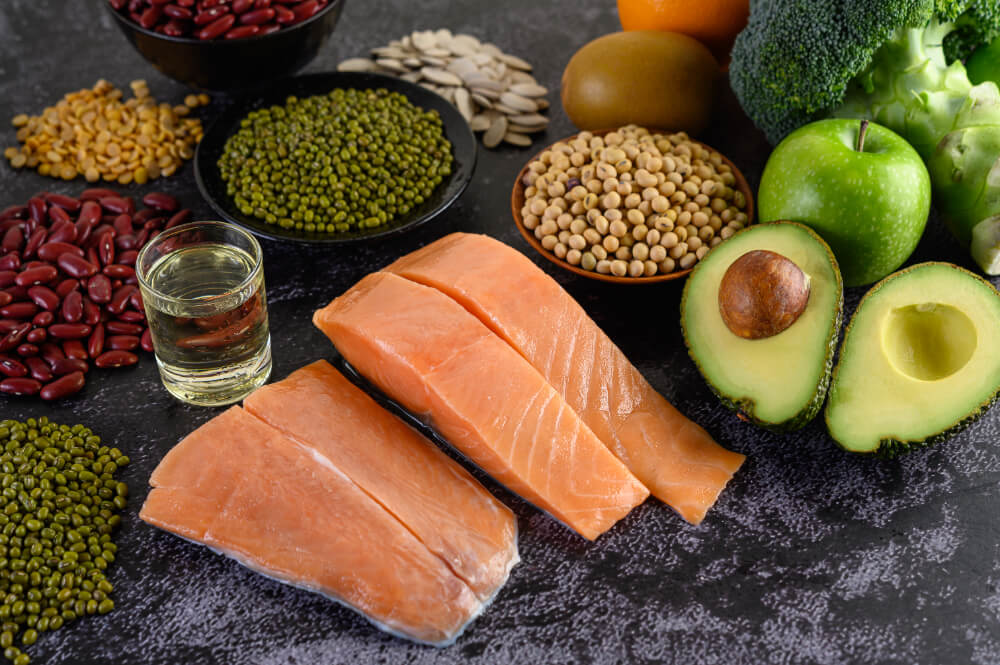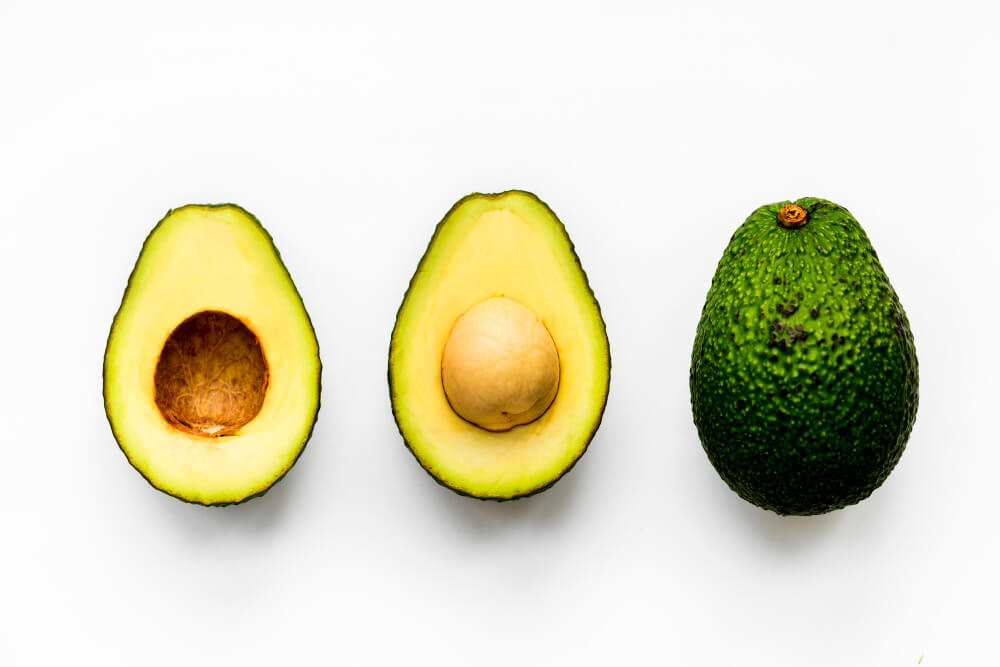8 Best Sources of Healthy Fats For a Balanced Diet You Should Consider

The best sources of healthy fats for a balanced diet are essential for maintaining optimal health and well-being.
Incorporating these nutritious fats can enhance heart health, support brain function, and improve nutrient absorption.
From fatty fish rich in omega-3s to avocados packed with monounsaturated fats, understanding these sources empowers you to make informed dietary choices.
In this post, we’ll explore the best sources of healthy fats for a balanced diet, ensuring you enjoy both flavor and nutrition in every bite.
7 Best Sources of Healthy Fats For a Balanced Diet
1. Fatty Fish

Fatty fish are a fantastic source of unsaturated and omega-3 fatty acids, which are important for your heart and brain health.
You can enjoy fatty fish as much as you want.
You have a variety of options to choose from, including tuna, herring, mackerel, salmon, sardines, and anchovies.
Fresh fish are excellent sources of omega-3 fatty acids, making it easy for you to incorporate them into your diet.
For example, a 3-ounce serving of fresh mackerel contains approximately 11.8 grams of fat and 15.8 grams of protein, underscoring its nutritional benefits.
2. Eggs
Eggs are an excellent source of protein, making them a great option for you.
A 50-gram hard-boiled egg provides about 78 calories and contains 5.3 grams of fat, with 1.64 grams being saturated.
The yolk is particularly nutritious, offering vitamin D and choline, a B vitamin that supports the function of your liver, brain, nerves, and muscles.
It also includes phytonutrients like lutein, which are beneficial for your overall health.
Interestingly, a 2018 study found that consuming a minimum of one egg per day can significantly lower your risk of cardiovascular disease.
3. Avocado

A 100-gram serving of avocado contains about 14.7 grams of fat and 160 calories, mainly from a healthy monounsaturated fatty acid called oleic acid.
This fatty acid offers several health benefits, including anti-inflammatory properties and potential cancer prevention.
In addition to healthy fats, avocados are a fantastic source of fiber, providing you with 6.7 grams per 100 grams.
They also contain lutein, which is beneficial for your eye health and are rich in potassium, enhancing their overall nutritional value
4. Olive oil
Olive oil is rich in heart-healthy monounsaturated fats, with an average tablespoon containing about 14 grams of fat.
It also provides essential nutrients like vitamins E, K, and powerful antioxidants.
A 2020 article suggests that incorporating olive oil into your diet—especially as a replacement for margarine, butter, mayonnaise, and dairy fats—can be linked to a lower risk of heart disease and overall cardiovascular issues.
5. Natural Unsweetened Yogurt
Full-fat natural yogurt is another nutritious option, packed with beneficial probiotic bacteria that support gut health.
Regular consumption of natural unsweetened yogurt may help reduce your risk of developing cardiovascular diseases.
However, there is some debate regarding the benefits of full-fat yogurt compared to low-fat alternatives.
While significant research indicates that full-fat dairy products can be part of a healthy diet, the United States Department of Agriculture (USDA) recommends prioritizing low-fat dairy options.
Ultimately, finding a balance that works for you is key.
Consume natural unsweetened yogurt instead.
6. Beef Tallow
Beef tallow is rendered fat derived from cows, celebrated for its rich nutrient profile and versatility in cooking.
Comprising about 50% saturated fat and 42% monounsaturated fat, along with a small amount of polyunsaturated fat, it serves as a stable cooking fat with a high smoke point, making it ideal for frying and roasting.
In terms of nutrition, beef tallow is calorie-dense, with approximately 115 calories per tablespoon.
It is particularly rich in fat-soluble vitamins such as A, D, E, and K2, which are essential for various bodily functions.
For those following keto or low-carb diets, beef tallow is an excellent choice due to its zero carbohydrate content.
When sourced from grass-fed cows, beef tallow offers even greater health benefits.
It contains higher levels of omega-3 fatty acids and conjugated linoleic acid (CLA), both of which may support heart health and aid in weight management.
This makes beef tallow not only a flavorful cooking option but also a nutritious addition to a balanced diet.
7. Pork meat
Pork meat is a versatile and nutritious protein source that can play a valuable role in a balanced diet, especially when considering the best sources of healthy fats.
While pork is primarily known for its protein content, certain cuts also contain healthy fats that contribute to overall dietary balance.
A 100-gram serving of cooked pork typically provides around 297 calories, 25.7 grams of protein, and approximately 20.8 grams of fat.
This fat content varies depending on the cut; for instance, pork belly and pork shoulder are higher in fat, while lean cuts like tenderloin are lower.
Including lean cuts of pork in your meals can help you enjoy the benefits of healthy fats without excessive saturated fat intake.
Pork is also rich in essential nutrients, including thiamine, vitamins B6 and B12, and minerals like selenium and phosphorus.
These nutrients support energy metabolism, brain function, and immune health.
When combined with other healthy fat sources—such as avocados or olive oil—pork can enhance the nutritional profile of your meals.
8. Fatty Meat
Fatty meat, often misunderstood, can be a valuable addition to a balanced diet, particularly when considering the best sources of healthy fats.
While fatty cuts of meat provide higher levels of saturated fat, they also contain beneficial monounsaturated fats, similar to those found in olive oil and avocados.
This balance can help improve heart health by lowering LDL cholesterol and enhancing the ratio of HDL cholesterol.
Rich in essential nutrients, fatty meat offers high-quality protein along with vital vitamins and minerals such as B vitamins, iron, and zinc.
These nutrients support energy metabolism, brain function, and immune health.
Additionally, the fat content in these meats contributes to increased satiety, helping to curb cravings and stabilize blood sugar levels.
Conclusion on Best Sources of Healthy Fats For a Balanced Diet
Incorporating the best sources of healthy fats into your diet is essential for achieving optimal health and well-being.
Foods like fatty fish, avocados, olive oil, and even certain cuts of meat offer a wealth of nutrients that support heart health, brain function, and overall vitality.
It is important you understand the benefits of these healthy fats and how they contribute to a balanced diet.
This will help you make informed choices that enhance both flavor and nutrition in your meals.

